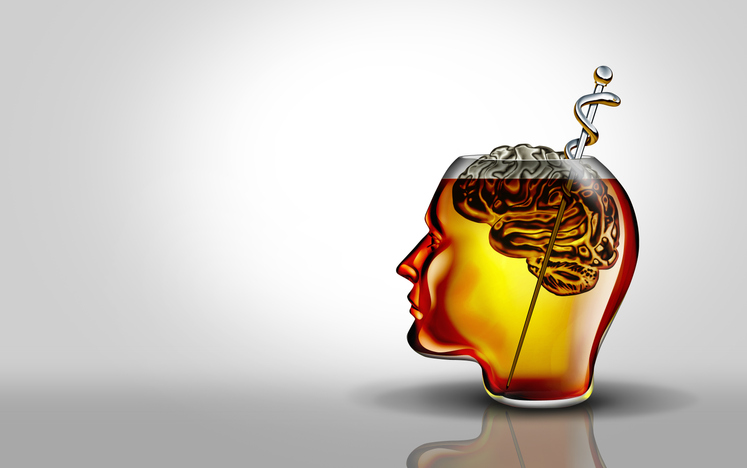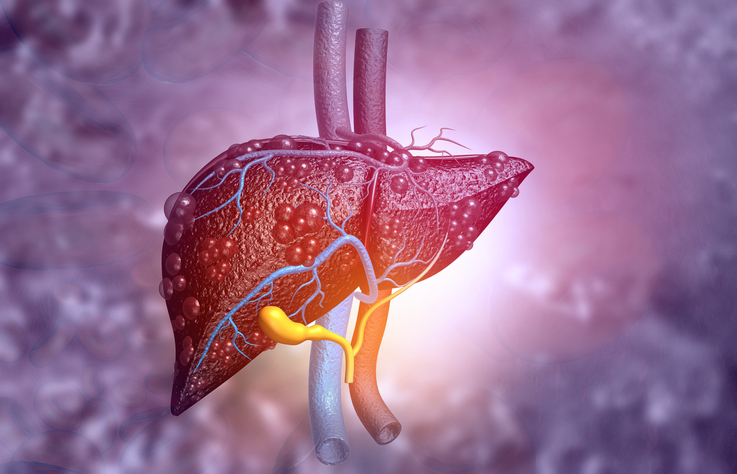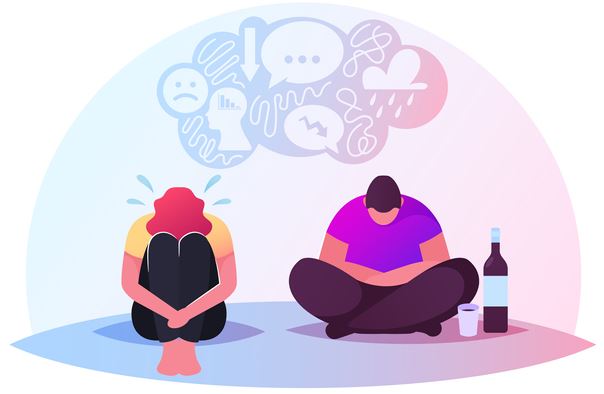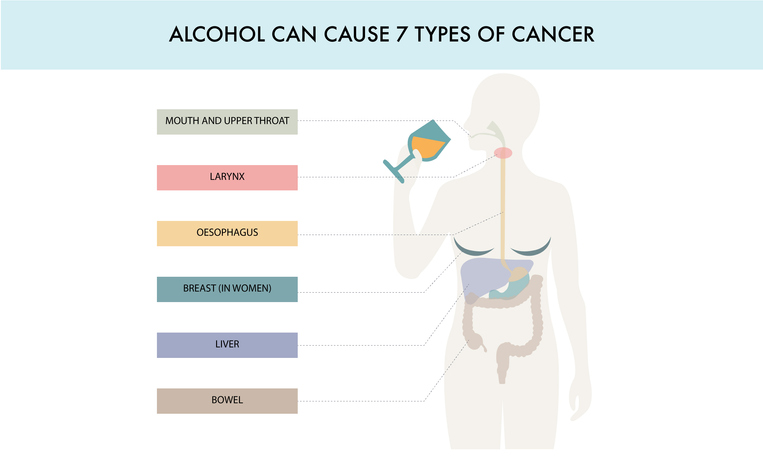Alcoholic beverages like wines, beers, distilled spirits (liquor), malt liquor, and hard cider, contain ethanol (ethyl alcohol). Alcohol is the term used for the chemical substance ethanol. It is manufactured by the fermentation of starch (by yeast) and sugar. According to the National Institute on Alcohol Abuse and Alcoholism, in the United States, a standard alcoholic beverage carries 0.6 ounces (14 grams) of pure alcohol.
When you consume alcohol, your body breaks down ethanol into a chemical known as acetaldehyde. Acetaldehyde harms the DNA and inhibits your body from repairing the harm. DNA is the instructional manual of the cell that controls the typical development and functioning of the cell. When DNA is harmed, the cells start developing out of control and result in the creation of a cancer tumor.

Research on Link Between Alcohol and Cancer
Drinking moderate or even light quantities of alcohol can increase the chances of several types of cancers. In a report on Alcoholic Beverage Consumption, the National Toxicology Program of the US Department of Health and Human Services used the word human carcinogen for the consumption of alcoholic drinks. Alcohol consumption can lead to the risk of developing six types of cancers, including liver, esophagus, breast (in women), voice box, mouth and throat, and colon and rectum cancer.
According to a study, even individuals with a habit of light drinking (not having more than one drink daily) have the possibility of developing cancer. With the increased quantity of alcohol, the chances of cancer development also increase. Binge to moderate drinkers, all are in danger.
According to research conducted between the period 2003-2009, binge drinking can cause breast cancer in women. A sample of breast cancer-free women, who were between the ages of 35-74 years, were taken for the study. The findings proved the relation between binge drinking and breast cancer. Those who were light drinkers had a lower risk of cancer than the moderate and binge drinkers.
A 2015 study, consisting of 16 articles, was conducted to investigate the relationship between cancer and alcohol, along with carcinogen mechanisms. Increased consumption of alcohol leads to an increased risk of cancer (alcohol consumption is the etiological factor of cancer). As compared to human cancer models, the research on animal cancer-model is vast.

Alcohol and Its Link With Different Types of Cancer
Plain patterns have developed between alcohol utilization and the growth of the following kinds of cancers:
Breast Cancer
It has been reliably found from epidemiologic studies that with an expanded consumption of alcohol, the risks of breast cancer also increase. Pooled information from 118 individual studies shows that, as compared to the non-alcohol consumers, the light alcohol consumers have a somewhat expanded (1.04-fold higher) chance of breast cancer. The hazard increment is more prominent in moderate alcohol consumers (1.23-fold higher) and heavy alcohol consumers (1.6-fold higher).
An investigation of prospective information for 88,000 females, taking part in two US cohort studies, concluded that for the females who are non-smokers, light to moderate alcohol intake was related with 1.13-fold expanded possibilities of developing alcohol-related cancer (mainly breast cancer).
Liver Cancer
Heavy alcohol utilization is related to around 2-fold expanded risks of liver cancer. The liver cancers caused by alcohol are intrahepatic cholangiocarcinoma and hepatocellular carcinoma.

Head and Neck Cancer
Moderate to binge intake of alcohol is associated with the higher possibilities of developing head and neck cancers. As compared to the non-drinkers, moderate alcohol consumers have 1.4-fold higher chances of larynx cancer and 1.8-fold higher chances of pharynx and oral cavity (excluding lips) cancer. Heavy alcohol consumers have 2.6 -fold higher chances of larynx cancer, and 5-fold higher chances of pharynx and oral cavity cancers.
Colorectal Cancer
There is a strong indication of the link between alcohol consumption and the risk of colorectal cancer. As compared to non-alcoholic consumers, moderate to heavy utilization of alcohol is related to 1.2 to 1.5-fold expanded risks of colon and rectum cancers.
Esophageal cancer
Alcohol intake (no matter light or heavy) is directly linked with a higher risk of esophageal squamous cell carcinoma (a type of esophageal cancer). As compared to the non-drinkers, the risk of esophageal cancer ranges from 1.3-fold higher for light alcohol consumption to nearly 5-fold higher for heavy alcohol consumption.
Other Harms of Alcohol
The worst thing about this whole scenario is that despite knowing that alcohol consumption can be fatal, many people still consume it. While the chances of having cancer from alcohol are less, they are still important. Besides, there are various other health concerns associated with the consumption of alcohol that are way more common.
Mental Health Concerns
One of the most rising causes of violence in modern societies is the increased consumption of alcohol. Your body might not have cancer but what’s even worse that can happen to you is when you live with a disturbed state of mind and your mental peace is at stake. Excessive consumption of alcohol tends to leave that effect, according to various studies. As a matter of fact, there are many celebrities as well who have had their careers and whole lives destroyed owing to excessive drinking habits. This includes Ben Afflick, Daniel Radcliffe, Zac Efron, and many other Hollywood stars as well.
Studies have shown that consuming alcohol could lead to invasive health effects which include domestic violence, depression, anxiety, stress, sexual violence, and even suicide or self-harm. Neither of these are anything that someone would want to go through which is why drinking alcohol is not considered safe.
A lesser impact of alcohol on mental health is associated with the memory and functioning of the brain. This can become a long-term issue as well in people who have a habit of consuming excessive alcohol.

Fetal Disorders Among Pregnant Woman
Imagine that you drink alcohol and are safe from all types of cancer. However, the child that you are carrying has been having severe health issues upon birth and may have various other complications for the rest of his life as well. Even thinking about it gives a very bad feeling which is why alcohol is strictly prohibited to pregnant women. According to several mass-scale studies, it has been found that miscarriage, stillbirth, and “Fetal Alcohol Spectrum Disorders” are highly common among women who drink alcohol or alcoholic drinks during their pregnancy.
Immune System Weakness
One of the most important problems associated with the excessive consumption of alcohol is that over time, it leads to a weakened immune system of the body. Neither is the body able to fight against harmful agents in a timely manner nor is a person immune to many diseases. The response time of the body against attacks reduces. In addition to that, sometimes, the immune system may not detect harmful agents. In worst cases, it could attack the internal organs of the body perceiving them as a threat. Those who don’t consume alcohol have a smooth and functioning immune system and their bodies fight against diseases easily.
Social Problems
Life without a good social connection is just as bad as a life with cancer. Those who consume more alcohol ultimately get addicted to it and are not in their actual mental condition most of the time. These people begin to experience behavioral disorders, laziness, and other similar conditions. For one, such people do not experience a good social life as others tend to stay away from them due to possibly harmful behavior that they interpret.
People tend to not visit them, nor do they allow their kids to meet them. In short, an alcohol addict becomes a lonely and miserable person as well. Similarly, such people are not even offered jobs or at least, good jobs.
You can find out a good range of healthy living tips here – Tips for Living a Healthy Life
Final Verdict
There is a substantial connection between alcohol and cancer. Alcohol consumption of any level is linked with the risk of developing several types of cancers. The more you drink, the more you will be at risk of having cancer. Therefore, you should avoid drinking alcohol if you are worried about your health. Not only cancer but the high consumption of alcohol is also linked with several other diseases.

